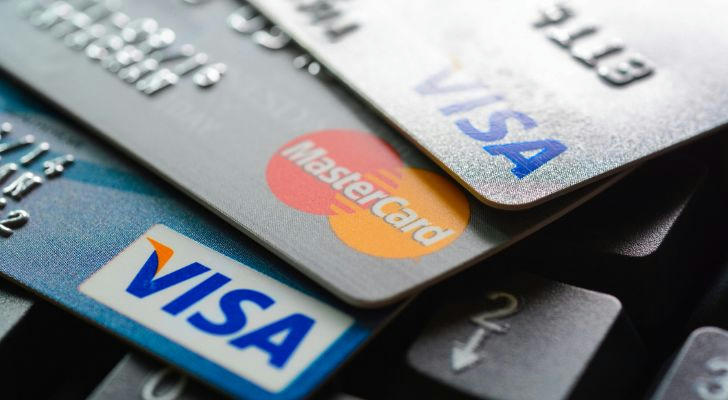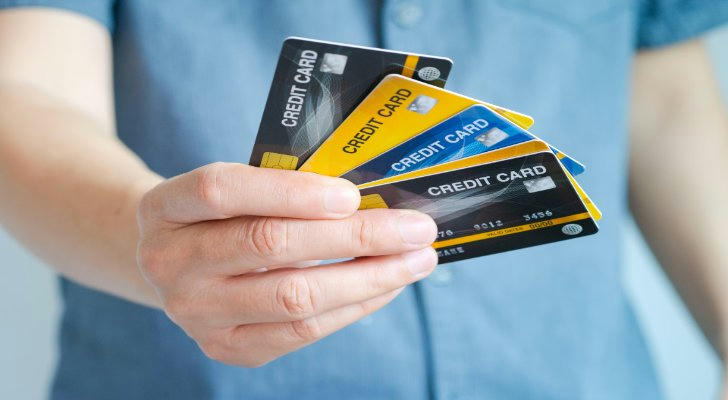How To Choose And Use A Credit Card: A Comprehensive Guide

Credit cards, as one of the modern financial tools, have been widely used in people's daily lives. Proper use of credit cards can not only improve personal credit, but also enjoy a series of benefits and conveniences. However, there are many types of credit cards, and it is crucial for consumers to choose the right credit card, understand its benefits, application process and precautions when applying. This article will introduce you to the benefits of credit cards, different types of credit cards and their differences, application process, and how to choose the right credit card according to your needs.
Benefits of Credit Cards
Convenient Payment Methods
Credit cards make payments more convenient. You don't need to carry a lot of cash. You can complete transactions by swiping the card. Whether shopping online or in stores, credit cards can provide you with a fast and secure payment experience.
Build a personal credit record
The use of credit cards can help build or improve personal credit records. The behavior of paying on time will be recorded in your credit report. A good credit record can help you get lower interest rates when applying for loans, buying houses or cars in the future.
Enjoy points and rewards
Many credit cards offer benefits such as point rewards, cash back or airline miles. Depending on the amount and category of consumption, you can accumulate points and redeem them for gifts, travel, etc., which increases the added value of credit cards.
Emergency Fund Turnover
Credit cards provide cardholders with a certain credit limit, which can provide help in cases of urgent need for funds. Paying by credit card can alleviate some sudden financial pressure, especially in emergency situations such as medical treatment and travel.
Purchase Protection and Insurance
Many credit cards also come with additional benefits such as purchase protection, car rental insurance, and travel delay insurance. When purchasing goods, if they are damaged or lost, some credit cards can provide certain compensation, which increases consumers' sense of shopping security.

Different types of credit cards and their differences
Standard credit card
This is the most common type of credit card and is suitable for most people. Standard credit cards do not have too many additional benefits, but still provide basic credit limits and payment functions.
Cashback credit card
Cashback credit cards offer different cashback ratios based on your spending categories. Usually, certain categories (such as dining, gas, supermarket shopping, etc.) will offer higher cashback rates and are suitable for people who spend frequently in these areas.
Points credit card
The reward method of points credit card is through consumption points, and cardholders can redeem points for various goods, travel rewards or other offers. This type of credit card is suitable for people who spend frequently and like to redeem rewards.
Travel credit card
Travel credit cards are usually designed for consumers who travel frequently, providing benefits such as airline miles, hotel discounts, airport lounges, etc. They often come with a certain annual fee, but for people who are keen on traveling, these benefits can make up for the cost of the annual fee.
Student credit card
Designed for college students and young people, with lower credit limits and easy approval. Student credit cards help young people start to build a credit history and usually have no annual fee.
Business credit card
Business credit cards are for business owners and company employees. It provides companies with a convenient way to manage expenses and often comes with additional business benefits such as installment payments, financial management tools, etc.
Credit card application process
Choose the right credit card
Before applying for a credit card, you must first clarify your needs, such as cash back, points, travel, etc. Choose the most suitable credit card type based on your personal consumption habits, income and credit status.
Fill in the application form
Once the type of credit card is determined, the applicant needs to fill in the credit card application form. The application form usually requires basic personal information, such as name, address, income, employment status, credit history, etc.
Submit the required materials
In addition to filling in the application form, banks usually require relevant supporting materials, such as proof of identity, proof of income, bank deposit certificate, tax bill, etc. For first-time credit card applicants, more materials may be required.
Credit review
The bank will review the application based on the applicant's credit record, income status and other relevant information. This process may take several days. If the credit record is good, it can usually be quickly approved.
Credit card approval and issuance
Once the credit card application is approved, the bank will mail the credit card and related materials to you. You can activate the credit card after receiving it and start using it.
How to choose the right credit card
Choose based on your spending habits:If you eat out often, choose a dining credit card with high cash back; if you are a frequent traveler, choose a credit card that offers airline miles or travel rewards. Choosing a credit card that meets your spending needs will allow you to get the most out of it.
Evaluate annual fees and additional benefits:Some credit cards come with high annual fees, but offer relatively rich benefits, such as airport lounge access, high cash back, travel insurance, etc. If you often take advantage of these benefits, the annual fee expenditure may be worth it. For cards with higher annual fees, be sure to carefully weigh whether the benefits can make up for the cost of the annual fee.
Credit status and credit limit:Credit card approval is closely related to personal credit status. Before applying, it is best to understand your credit score and financial situation. If you have a low credit score, you may need to choose an entry-level or low-limit credit card.
What should I refer to when applying for a credit card?
Official websites of credit card companies and issuing banks
Major credit card companies (such as VISA, MasterCard, American Express) and banks (such as Chase and Bank of America in the United States, HSBC and Barclays in the United Kingdom) provide detailed credit card application information, including credit card types, application conditions, fee structure, etc.
Credit scoring agencies (such as FICO, Experian, Equifax, TransUnion)
In the United States, FICO scores are an important indicator of personal credit status, and many credit card applications refer to FICO scores.
In other countries, there are similar credit scoring agencies, such as Experian and Equifax, and the credit reports and data provided are crucial for credit card applications.
Government agencies and financial regulators
Financial regulators in various countries, such as the Consumer Financial Protection Bureau (CFPB) in the United States and the Financial Conduct Authority (FCA) in the United Kingdom, provide information on credit card laws and regulations, consumer rights protection, etc.
Case Study
Xiao Li recently decided to apply for a credit card to better manage his daily spending and enjoy points rewards. In order to increase the chances of a successful application, he first learned about his bank's credit card policy before applying and checked his credit report to ensure that his credit score was good. Then, he prepared relevant materials, such as his ID card, proof of income and proof of address, and chose a credit card type that suited his needs. After submitting the application, the bank quickly reviewed it. A few days later, Xiao Li received a notification from the bank that he had successfully applied for his desired credit card. The bank not only provided him with an appropriate credit limit, but also gave him a free annual fee for the first year.

